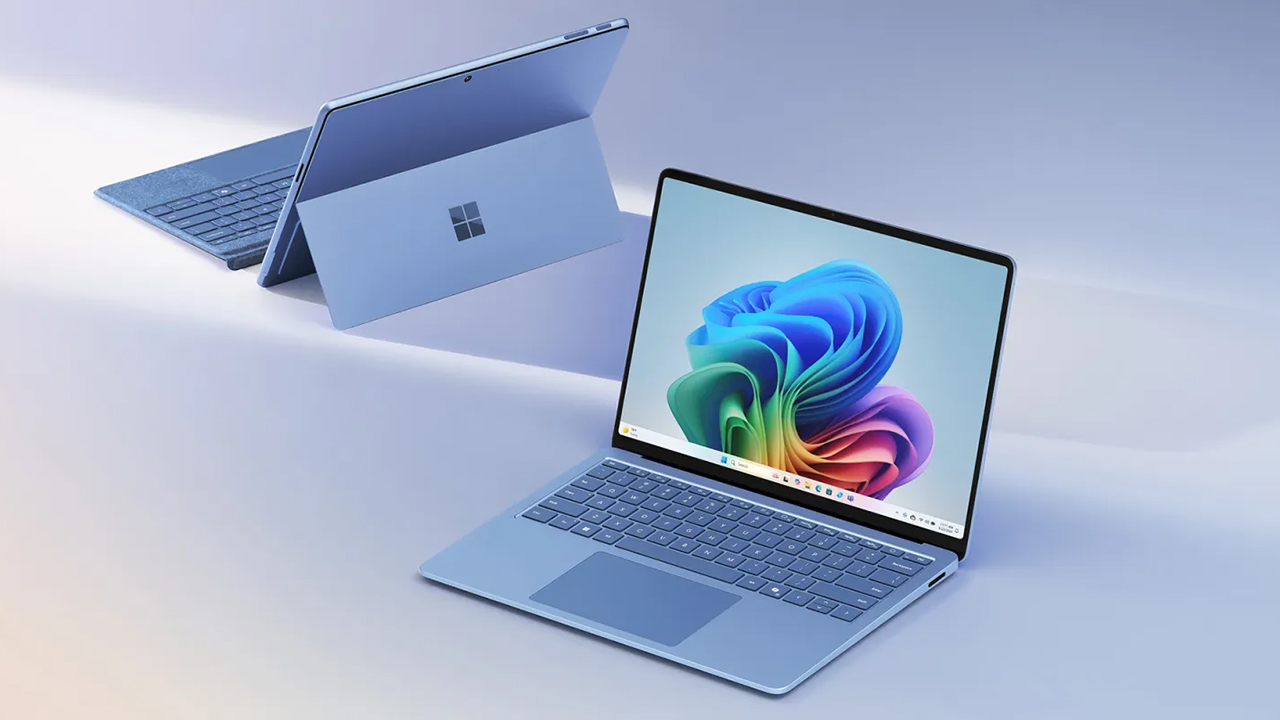
We’re not sure if everyone remembers it, but back in June 2021, Microsoft actually announced ARM64EC for its new Windows 11 operating system.
The Redmond tech giant describes ARM64EC as a new way to speed up your existing x64 applications with the native performance you expect on ARM.
Keep in mind that Microsoft specifies that this is possible even if you use plugins and dependencies that don't yet support the architecture.
Now, a little over a year after its initial release, ARM64EC is now fully supported by Windows 11, the latest operating system designed by Microsoft.
And, since we’re talking about Windows 11 emulation, know that Parallels Desktop 18 brings a lot of gaming and other improvements.
Arm64EC brings full Windows 11 ARM support
In case you might not know what the abbreviation means, the EC in the name is actually Emulation Compatible, which is really self-explanatory.
As Microsoft puts it, the general idea here is to provide an Application Binary Interface (ABI) that allows developers to build applications using x64 and ARM code.
Digging deeper into the topic, this means that ARM code will run natively on Windows 11 on ARM devices, while x64-specific code will run through emulation.
Needless to say, this is actually a major milestone for ARM-based Windows 11, as it is the only supported Microsoft operating system with x64 emulation, which is the backbone of ARM64EC.

The ARM64EC ABI differs from the existing ARM64 ABI by making it binary compatible with x64 code.
Specifically, the ARM64EC ABI follows x64 software conventions, including calling conventions, stack usage, and data alignment, making ARM64EC and x64 interoperable. Applications built as ARM64EC may contain x64 code, but are not required to because ARM64EC is its own complete, first-class Windows ABI.
After completing all the work on the project, the tech giant now believes ABI is stable enough to transition from the experimental phase to a full release.
In addition, ARM64EC brings some major benefits to developers, who can now update their code and run both x64 and ARM features simultaneously, rather than ensuring that their entire code base is ARM compatible.
On Windows on ARM devices, the latter will have better performance, which means you actually have to keep updating your code base to improve native ARM performance without losing anything in the process Function.
Prerequisites
You wouldn't think this would work without any prerequisites, would you? Yes, there are some prerequisites for this to actually work, they are:
- Latest Windows 11 SDK version. If using Windows 11 SDK version 22000, the July 29, 2022 update includes critical fixes for building Arm64EC applications.
- Visual Studio 2022 version 17.3 or higher.
- Arm64EC tools installed using the Visual Studio installer.
The above is the detailed content of ARM with Arm64EC now fully supports Windows 11. For more information, please follow other related articles on the PHP Chinese website!
 如何在 M1 Mac 上下载和安装 Windows 11 ARM ISOApr 19, 2023 am 08:40 AM
如何在 M1 Mac 上下载和安装 Windows 11 ARM ISOApr 19, 2023 am 08:40 AM能够在Apple硅设备上运行Windows是用户长期以来的愿望。他们一直在等待知道如何在M1Mac上下载和安装Windows11ARMISO。但是,以前,基于Windows10ARM的PC存在许多限制。但随着Windows11ARM版本的发布,微软努力解决了它的一些限制。例如,在其他改进中,它现在提供对64位应用程序的支持,但对于M1Mac,仍然没有官方支持。目前,您可以使用这5款适用于Mac的最佳PC仿真软件中的任何一款在Apple笔记本电
 MacBook Pro, iMac to get the M4 upgrade later this year followed by MacBook Air in spring of 2025, claims reliable tipsterJun 25, 2024 am 06:35 AM
MacBook Pro, iMac to get the M4 upgrade later this year followed by MacBook Air in spring of 2025, claims reliable tipsterJun 25, 2024 am 06:35 AMEver since the Apple M4-powered OLED iPad Prolineuparrived, Apple Silicon aficionados have been eagerly awaiting the arrival of the M4 SoC on the Mac lineup. The M4 was undeniably a major leap forward in both compute and graphics performance - leapfr
 Snapdragon X Elite CPU performance nearly identical on battery and plugged-in in Vivobook S15 benchmarksJun 20, 2024 pm 03:59 PM
Snapdragon X Elite CPU performance nearly identical on battery and plugged-in in Vivobook S15 benchmarksJun 20, 2024 pm 03:59 PMDespite the hype surrounding the Qualcomm Snapdragon X Elite, it has been a rather mediocre launch. In our review, we found that the most impressive part of the new Qualcomm Snapdragon X Elite X1E-78-100-powered Asus Vivobook S 15 was the seamlessnes
 Snapdragon X Elite lags behind iPhone 15 Pro in GravityMark GPU test in a shocking anomalyJun 19, 2024 am 10:50 AM
Snapdragon X Elite lags behind iPhone 15 Pro in GravityMark GPU test in a shocking anomalyJun 19, 2024 am 10:50 AMThe newly launched Snapdragon X Elite chip has finally started shipping in laptops. As per our in-depth review of the VivoBook S 15 OLED featuring the X Elite (78-100) with 12 cores and slightly less powerful graphics than the highest-end SKU (84-100
 Linux下使用GDB调试嵌入式ARM程序的常见配置方法Jul 05, 2023 am 08:10 AM
Linux下使用GDB调试嵌入式ARM程序的常见配置方法Jul 05, 2023 am 08:10 AMLinux下使用GDB调试嵌入式ARM程序的常见配置方法嵌入式系统作为一种特殊的计算机系统,通常集成在电子设备中,用于控制和管理硬件资源。为了调试和分析嵌入式系统的运行状况,我们需要使用专门的工具。其中,GDB是一种常用的开源调试器,它能够在嵌入式系统上运行并与程序进行通信。本文将介绍在Linux下使用GDB调试嵌入式ARM程序的常见配置方法,并给出代码示例
 Microsoft confirms release dates of more native ARM Adobe apps for new Snapdragon X series laptopsJun 23, 2024 am 06:49 AM
Microsoft confirms release dates of more native ARM Adobe apps for new Snapdragon X series laptopsJun 23, 2024 am 06:49 AMMicrosoft and other manufacturers have started to ship the new Copilot Plus PCs. This first wave of laptops comes with Qualcomm Snapdragon X series chipsets, which are based on ARM. While they can run Windows apps through the Prism emulator, some hav
 Snapdragon X Elite CPU performance nearly identical on battery vs AC power in Vivobook S15 benchmarksJun 21, 2024 am 06:50 AM
Snapdragon X Elite CPU performance nearly identical on battery vs AC power in Vivobook S15 benchmarksJun 21, 2024 am 06:50 AMDespite the hype surrounding the Qualcomm Snapdragon X Elite, it has been a rather mediocre launch. In our review, we found that the most impressive part of the new Qualcomm Snapdragon X Elite X1E-78-100-powered Asus Vivobook S 15 was the seamlessnes
 Arm计划在中国进行重组,裁员70多名工程师Dec 18, 2023 pm 06:51 PM
Arm计划在中国进行重组,裁员70多名工程师Dec 18, 2023 pm 06:51 PM根据彭博社北京时间今天中午的报道,知情人士称,Arm最近在中国进行了裁员,裁掉了70多名软件工程师,并将一部分职位调整到亚洲以外的地区其中有一名不愿透露身份的消息人士透露,被裁的员工约有15人将被安排从事与中国有关的项目。另一位不具名人士表示,被裁掉的职位目前由合同制软件工程师“顶上”,他们曾参与涉及Arm全球业务的项目。Arm在声明中表示,“为确保中国软件生态系统能够充分发挥Arm性能和功能的最大优势,Arm正在重组其在中国的软件工程资源,将重点放在对本地开发人员的直接支持上。”Arm通过一个

Hot AI Tools

Undresser.AI Undress
AI-powered app for creating realistic nude photos

AI Clothes Remover
Online AI tool for removing clothes from photos.

Undress AI Tool
Undress images for free

Clothoff.io
AI clothes remover

AI Hentai Generator
Generate AI Hentai for free.

Hot Article

Hot Tools

ZendStudio 13.5.1 Mac
Powerful PHP integrated development environment

WebStorm Mac version
Useful JavaScript development tools

Notepad++7.3.1
Easy-to-use and free code editor

mPDF
mPDF is a PHP library that can generate PDF files from UTF-8 encoded HTML. The original author, Ian Back, wrote mPDF to output PDF files "on the fly" from his website and handle different languages. It is slower than original scripts like HTML2FPDF and produces larger files when using Unicode fonts, but supports CSS styles etc. and has a lot of enhancements. Supports almost all languages, including RTL (Arabic and Hebrew) and CJK (Chinese, Japanese and Korean). Supports nested block-level elements (such as P, DIV),

MinGW - Minimalist GNU for Windows
This project is in the process of being migrated to osdn.net/projects/mingw, you can continue to follow us there. MinGW: A native Windows port of the GNU Compiler Collection (GCC), freely distributable import libraries and header files for building native Windows applications; includes extensions to the MSVC runtime to support C99 functionality. All MinGW software can run on 64-bit Windows platforms.






